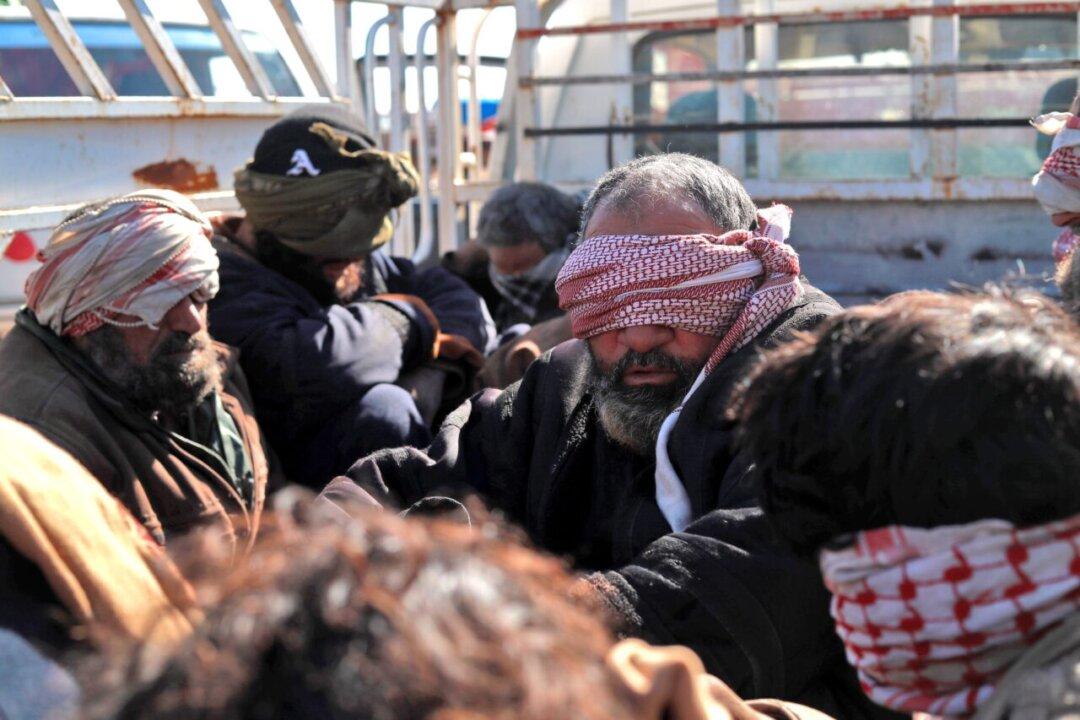U.S. President Donald Trump said in a tweet on Oct. 18 that he had learned that some European nations are now willing to take back the ISIS fighters that came from their nations, without elaborating.

Alleged ISIS fighters who fled from the frontline Syrian village of Baghuz, near the Iraqi border, sit blindfolded in the back of a pickup truck after being taken into custody by SDF forces for screening, near the Omar oil field in the countryside of the eastern Syrian Deir ez-Zor province on Jan. 30, 2019. Delil Souleiman/AFP/Getty Images

Ella Kietlinska
Reporter
|Updated:



